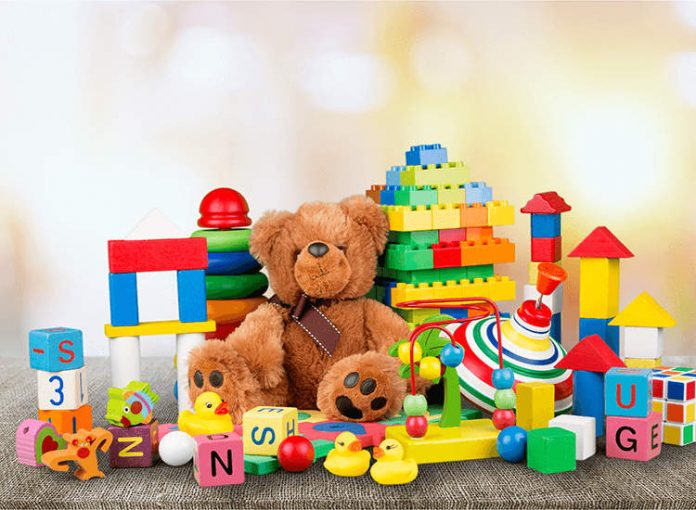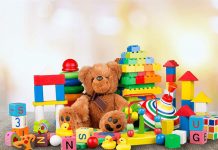This article is written by Gaurav Kumar, from Surendranath law College (University of Calcutta). This article discusses the BIS compliance requirement for toy manufacture as ordered by the Central Government in the year 2020.
Table of Contents
Introduction
Toys are a part of everyone’s childhood life. The necessary concern of the parents over the use of toys is that they are quality products and don’t compromise with the standard of the product. The cheap quality of products may harm the children and endanger their lives. Before 1st September 2020, the toy manufacturers were free from obtaining any BIS certification, so they manufactured toys and children products in mass without taking quality, security and reliability norms into consideration. So, it was the onus on the government to provide a standard for the manufacturer companies so that they can introduce quality toy products in the market without compromising safety and reliability standards.
Recently, the Central Government under the powers conferred by sub-sections (1) and (2) of section 16 read with sub-section (3) of Section 25 of the Bureau of Indian Standards Act, 2016 (11 of 2016), passed the Toys (Quality Control) Order, 2020 for the purpose of toys and other such materials manufacturer companies to meet the safety and quality standards before selling it in the Indian markets. The acceptance of the Indian Standard would provide the consumers to recognize the quality of toy products being sold in the market and grab the better one bearing the Indian Standard marks which would provide better quality products to their children.
Role of BIS to maintain the quality of goods
The Bureau of Indian Standard, in short, known as BIS, is a national Standards body established by the Bureau of Indian Standards Act, 1986. It works under the aegis of the Ministry of Consumer Affairs, Food & Public Distribution, Government of India. Later, the Act was repealed by the Bureau of Standards Act, 2016, and BIS was re-established as the National Standards Body of India. The main purpose for the establishment of the bureau was to recognize, formulate and promote the Indian Standards with regard to different products. The foreign manufacturer also needs to obtain the BIS certification before marking its product presence in the Indian market.
The BIS through the standardization, testing and certification, has been providing various benefits not only to the consumers but also to the national economy in the way of providing quality and reliable goods that are safe for internal and external consumption, minimizing health hazards to consumers, promoting export and import substitutes, etc.
Function
Having its Headquarters in New Delhi and regional offices at Chandigarh, Kolkata, Mumbai, Chennai, Delhi the Bureau offers certification services to the industry and serves as an effective link between state governments, industries, technical institutions, a consumer organization, etc. of the respective region. The BIS is not a standard or uniform directive that applies to each and every product. For different products the specific Indian Standard is applicable.
Procedure for obtaining the BIS certification
The companies seeking BIS certification for the purpose of selling their products in the market should go by the following given procedure:
- The manufacturer needs to get its product tested from any one of the recognized BIS laboratories. All critical components and their test report must be attached if it is required. Generally, a test report gets 15 days to prepare.
- The test report must be issued on the name of the producer bearing the name of the manufacturing unit and the address of the unit.
- The applicant must check that the test report is duly evaluated before making an application for the BIS certification.
- The applicant needs to download form VI and VII from the BIS website and fill it duly supporting the test report of not more than 90 days old from the date of application. The physical copies of the required documents must be submitted within 15 days at the BIS Office.
- In the case of the manufacturer being a foreign company, the application must be filled and signed by the Authorised Indian Representative according to the required norms of the BIS.
- The manufacturers need not apply for registration for each of the products for different locations separately. If the product is made under different brand names then the applicant needs to get the different brand name certified individually.
- After the application is made, the certification is granted to the applicant on the verification made by the officials within 15 days. The validity of the registration is till 2 years and it can be renewed if there is no change in the quality and standard of the product.
Documents needed for BIS registration
- Acknowledgement slip obtained after online file submission.
- Address proof including business license and other such similar documents as required by the Government.
- Application signed by the CEO of the company or authority letter obtained from him.
- Authorization letter of the brand owner, registration certificate, or any trademark registration certificate.
- Test report along with its undertaking.
- For the importer, the document must include:- Commercial invoice, packaging list, insurance cover note, bill of lading, and the country of origin certificate from where the manufacturing company belongs.
On the submission of all the above-stated documents, the Bureau shall grant the registration number after inspection. The BIS registration number shall be marked by the manufacturer on its product after obtaining the registration.
Recent order regarding classification of toys for BIS for Certification
The toys and play articles didn’t come under the applicability of the BIS compliance until the Central Government under the powers conferred by sub-sections (1) and (2) of section 16 read with sub-section (3) of Section 25 of the Bureau of Indian Standards Act, 2016 (11 of 2016), passed the Toys (Quality Control) Order, 2020 for the purpose of toys and other such materials manufacturer companies to meet the safety and quality standards before selling it in the Indian markets. The major aim of the government behind implementing was to eliminate the Chinese toy manufacturers who had captured the Indian markets through their cheap quality products providing a very low cost. This order came into force on September 1, 2020.
However, due to ongoing COVID-19, the government vide an order extended the enforcement time from 1st September 2020 to 1st January 2021. After this order, the toy manufacturers and the importers will have to comply with the Bureau of Indian Standard to meet the safety, quality, standard and reliability norms while manufacturing and importing the toys for children under 14 years. So, the Indian manufacturers will have to obtain the necessary BIS certification before selling toys for children below 14 years in the market. Despite Indian manufacturers, foreign manufactures will also have to obtain the BIS certification with regard to the physical and mechanical properties. The toys will have the standard mark stamped on them under the license obtained by the bureau as under Scheme-I of Schedule-II of BIS (Conformity Assessment) Regulations, 2018.
Enforceability
The Bureau of Indian Standards shall work as certifying and enforcing agency as provided under the Central Government’s order. In order for ensuring compliance with the order, BIS shall physically inspect all the aspects including manufacturing units, the type of products used, and whether the standards are met in the toy products or not. In case the manufacturer is a foreign company the BIS shall inspect the sample of the imported goods to ensure the standard quality, safety, and reliability norms before providing the certification to such companies.
Applicability
This order applies to all the companies in India who are involved in toy or children’s play articles manufacturing. The foreign companies who are importing toys to India are also covered under this order. However, this order doesn’t apply to the manufacturing companies who are involved in making articles other than the toys.
Effect
After the date, this order was enforced (1st September 2020) no toy manufacturer, producer or importer shall sell the toy products in the Indian markets without obtaining the BIS certification from the bureau. The process for obtaining the BIS standard mark for the toy manufacturers/importers shall be as according to Scheme I of Schedule II of the BIS (Conformity Assessment) Regulations, 2018. However, the government vide a notification has extended the enforcement period from 1st September 2020 to 1st January 2021
Registration
The Indian and foreign manufacturers who are willing to obtain the BIS license may apply according to the process as provided under the certification scheme available on the website of the BIS (bis.gov.in). The local manufacturers can make an application on the Manakonline portal (manakonline.in). The manufacturers are required to register themself on the portal and then follow the instructions to apply for the license, providing all necessary details such as manufacturing machinery, test equipment, etc. They can also make the payment through online mode.
Due to the availability of different types of toys on the market, the order provides two different types of toys for the purpose of BIS certification. These are provided as under:
|
Sr. No |
Type |
Applicable standard |
|
1 |
Non-Electric Toys (these are ordinary toys such as rattles, dolls, puzzles, etc. which do not have any function dependent on electricity) |
IS 9873 (Part 1):2019 |
|
2 |
Electric toys having at least one electric function provided. |
IS 15644:2006 |
The manufacturing companies may apply before the bureau for the purpose of obtaining the BIS certification according to the type of toys they are manufacturing. In case, the manufacturing companies have to obtain the license for more than one type of toy they have to apply individual application for each type of toy as provided in the above chart.
The specification with regard to the BIS concerning toys as provided by the order is provided as under:
|
Goods/articles |
Indian Standard |
Title of Indian Standard |
|
Toys |
IS 9873 (Part 1): 2018 |
Safety of toys part 1, safety aspects related to Mechanical and Physical aspects. |
|
Toys |
IS 9873 (Part 2): 2017 |
Safety of Toys part 2, Flammability. |
|
Toys |
IS: 9873 (Part 3): 2017 |
Safety requirements for Toys Part 3 Migration of certain elements. |
|
Toys |
IS: 9873 (Part 4): 2017 |
Safety of toys part 4 swings, slides and similar activity toys for indoor and outdoor activity domestic use. |
|
Toys |
IS: 9873 (Part 7): 2017 |
Safety of toys part 7, Requirement and Test Methods for finger paints |
|
Toys |
IS: 9873 (Part 9): 2017 |
Safety of toys part 9, Certain Phthalates Esters in toys and Children’s Products |
|
Toys |
IS: 15644: 2006 |
Safety for Electronic toys. |
Analysis
The order passed by the Central Government with regard to the BIS standard compliance with the toys manufacturers had brought the toys under all other articles which are already under the ambit of the BIS license certification. It will provide quality products before the consumers eliminating the ill quality products from the market.
Complaint on non-compliance
While using the toys or children play products, if the parents/ consumers come across that the manufacturing company has compromised with the standard quality, safety, and reliability with its products and it doesn’t bear the BIS mark or the manufacturing company has been violating the standard guidelines provided by the Bureau, they can prefer a complaint through registering an online complaint on the BIS website. The complaint registration website can be accessed by visiting the link http://bis.org.in/other/online_application_icare.asp. The consumer can also register complaints by personally contacting or writing to the Public Grievance Officer of the nearest Regional/ Branch office of BIS or directly to the Head (Consumer Affairs Department). The non-compliance with the BIS certification may result in manufacturing companies facing criminal liability, imprisonment with or without huge fines.
Conclusion
According to a German market data portal, Statista the size of India’s toy market in 2020 is estimated at $38.1 Billion. Recently, our Prime Minister in his radio program highlighted India’s ability to become a “toy hub” in the world. Such huge market statistics show the increasing number of consumers in the Indian market. Hence, the Central Government’s order shall not only serve the consumer’s interest but also introduce quality products in the Indian markets further making India the “toy hub” in the world.
References
- https://www.latestlaws.com/articles/mandatory-bis-compliance-for-toy-manufacturers-importers-explained/
- https://www.india-briefing.com/news/india-mandates-bis-certification-import-electronic-products-18257.html/
LawSikho has created a telegram group for exchanging legal knowledge, referrals and various opportunities. You can click on this link and join:
 Serato DJ Crack 2025Serato DJ PRO Crack
Serato DJ Crack 2025Serato DJ PRO Crack











 Allow notifications
Allow notifications


